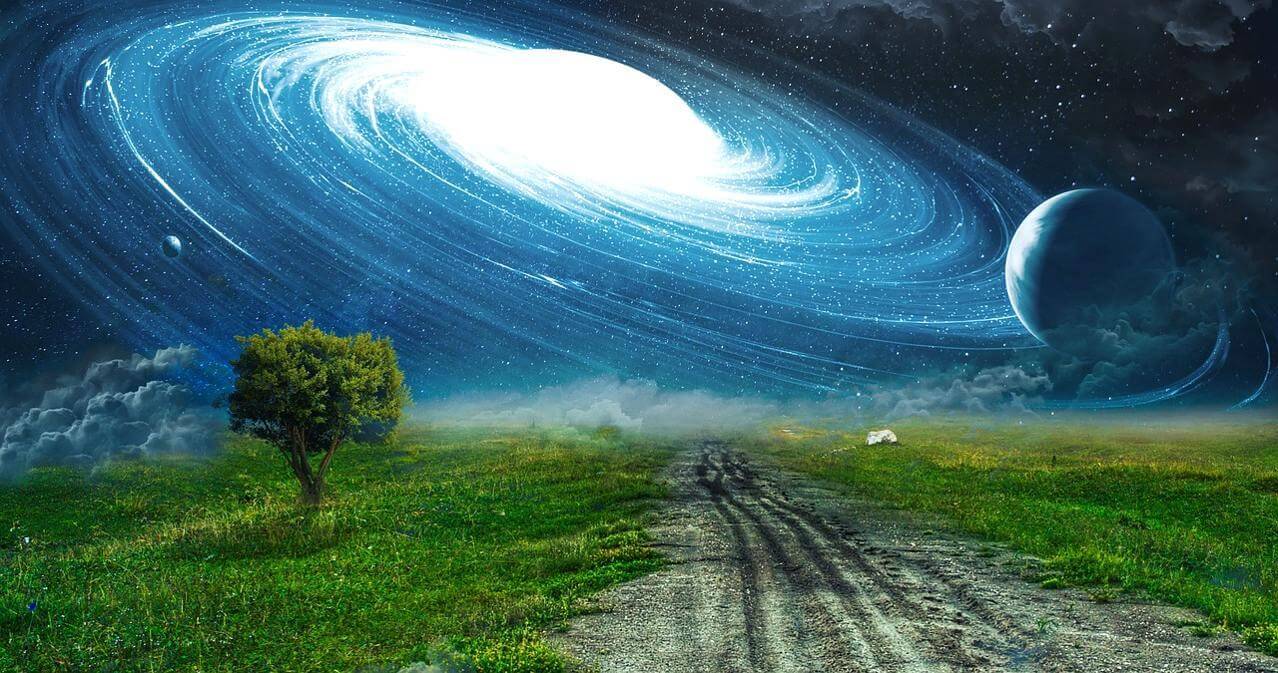Astrology is an ancient practice that connects celestial bodies to human life, and in Jyotish (Vedic astrology), this connection is even more profound. The Navagrahas, or the nine planets in Jyotish, are believed to govern various aspects of human existence, including personality, emotions, health, career, relationships, and karma. By understanding the role of these planets, one can better comprehend the influence they have on life’s events and challenges. This article will explore the significance of each planet in Jyotish and how their placements can shape our destiny.
What Are the Navagrahas? The Nine Planets in Jyotish Astrology
The Navagrahas consist of nine celestial bodies: the Sun, Moon, Mars, Mercury, Jupiter, Venus, Saturn, and the two shadow planets, Rahu and Ketu. These planets are not just astronomical entities; in Jyotish, they represent energies that influence human life. Each planet is associated with specific qualities and life areas. For example, the Sun governs vitality and leadership, while Mercury influences communication and intellect.
Understanding the placement of these planets in a person’s natal chart can reveal how they will impact the individual throughout their life. The planets are also linked to karma, indicating past actions and lessons to be learned in this lifetime.
Sun (Surya) in Jyotish: The King of the Planets
The Sun, known as Surya in Jyotish, is regarded as the king of all planets. It symbolizes the soul, authority, and vitality. In a natal chart, the Sun’s placement indicates a person’s sense of self, leadership abilities, and overall life force. The Sun is associated with health, particularly the heart and circulatory system, and is considered the giver of life.
A strong Sun in a person’s chart brings confidence, success, and respect, while a weak or afflicted Sun can lead to health problems, low self-esteem, and difficulties in achieving recognition. Surya’s influence is most prominent in areas related to career, authority, and personal willpower.
Moon (Chandra) in Jyotish: Emotional and Mental Balance
In Jyotish, the Moon, or Chandra, governs emotions, the mind, and mental stability. It reflects our inner emotional world and instinctive reactions to life events. A well-placed Moon in a natal chart suggests emotional balance, nurturing qualities, and a strong sense of intuition.
The Moon is closely connected to the mother and represents feminine energy. It also governs habits, moods, and memory. A strong Moon brings mental peace, while a debilitated Moon can lead to emotional turmoil, mood swings, and mental instability. The Moon’s phase at the time of birth also plays a significant role in determining a person’s temperament.
Mars (Mangal) in Jyotish: The Warrior Planet
Mars, or Mangal in Jyotish, is the planet of energy, strength, and courage. It represents the warrior spirit and governs physical strength, ambition, and the ability to overcome challenges. Mars is associated with passion, assertiveness, and conflict resolution.
A strong Mars in a natal chart indicates a person who is driven, courageous, and able to handle adversity with determination. However, an afflicted Mars can lead to impulsiveness, aggression, and difficulties in controlling anger. Mars also governs accidents and injuries, so its placement can impact one’s physical safety.
Mercury (Budh) in Jyotish: The Planet of Communication and Intellect
Mercury, known as Budh in Jyotish, is the planet of communication, intellect, and analytical abilities. It influences how we think, speak, and learn. Mercury governs commerce, trade, education, and writing. People with a strong Mercury are often skilled communicators, quick learners, and rational thinkers.
When Mercury is well-placed in a natal chart, it brings clarity of thought, eloquence, and success in academic or business pursuits. However, if Mercury is weak or afflicted, it can lead to confusion, miscommunication, and difficulties in decision-making. Mercury also governs the nervous system, so its placement can affect mental health and stress levels.
Jupiter (Guru) in Jyotish: The Planet of Expansion and Wisdom
Jupiter, or Guru, is the planet of wisdom, expansion, and spiritual growth. Known as the great benefic in Jyotish, Jupiter governs higher education, philosophy, and religious beliefs. It brings abundance, good fortune, and opportunities for growth in the areas it influences.
A strong Jupiter in a natal chart indicates a person who is optimistic, generous, and wise. This planet is also connected to wealth and prosperity, as well as moral and ethical values. A weak or afflicted Jupiter can lead to missed opportunities, financial difficulties, and challenges in education or spiritual development.
Venus (Shukra) in Jyotish: The Planet of Love, Beauty, and Creativity
Venus, or Shukra in Jyotish, governs love, beauty, and artistic expression. It represents harmony, pleasure, and relationships, as well as wealth and material comforts. Venus is the planet of sensuality and creativity, influencing how we express affection and enjoy the finer things in life.
A strong Venus in a natal chart indicates success in love, creativity, and artistic pursuits. It brings charm, elegance, and an appreciation for beauty. However, if Venus is weak or afflicted, it can lead to relationship difficulties, financial troubles, and a lack of artistic fulfillment.
Saturn (Shani) in Jyotish: The Taskmaster and Karmic Planet
Saturn, known as Shani in Jyotish, is often considered a harsh planet due to its association with challenges, delays, and discipline. However, Saturn is also deeply connected to karma and life lessons. It teaches patience, responsibility, and hard work through adversity.
A strong Saturn in a natal chart indicates discipline, perseverance, and the ability to overcome obstacles. However, an afflicted Saturn can bring delays, hardships, and a sense of restriction. Saturn’s influence is particularly strong in areas related to career, life structure, and long-term goals.
Rahu in Jyotish: The North Node of the Moon and Its Mysterious Influence
Rahu, the North Node of the Moon, is considered a shadow planet in Jyotish. It represents material desires, confusion, and obsession. Rahu is known for creating illusions and unconventional approaches to life, often pushing individuals to explore taboo or uncharted territories.
A strong Rahu can bring innovation, breakthroughs, and success in unconventional fields. However, Rahu’s influence can also lead to addiction, restlessness, and unexpected disruptions. Rahu is deeply connected to karmic lessons, often bringing challenges that push individuals out of their comfort zones.
Ketu in Jyotish: The South Node of the Moon and Spiritual Detachment
Ketu, the South Node of the Moon, represents spiritual detachment and past-life karma. In Jyotish, Ketu is known for bringing loss, separation, and enlightenment. It encourages individuals to detach from material attachments and seek spiritual growth.
A strong Ketu in a natal chart indicates a person who is spiritually inclined, introspective, and detached from worldly desires. However, an afflicted Ketu can lead to confusion, isolation, and a lack of direction in life. Ketu is often associated with sudden changes and the need to let go of material attachments to pursue spiritual evolution.
The Impact of Planetary Influences and Karma in Jyotish
In Jyotish, the Navagrahas are believed to influence our karma and destiny. The planetary positions in a natal chart reflect the lessons we must learn, the challenges we will face, and the areas where we will find success. Each planet represents different karmic energies, and their influence can guide us through life’s ups and downs.
Jyotish also emphasizes the importance of planetary transits, which can trigger significant life events and shifts in energy. Understanding how the planets affect our karma allows us to align our actions with the cosmic flow and navigate life’s challenges more effectively.
How to Use Remedies for Planetary Imbalances in Jyotish
When the influence of a planet becomes too strong or negative, Jyotish offers various remedies to balance the energy. These remedies include wearing specific gemstones associated with planets, chanting mantras dedicated to a particular deity, or performing rituals such as Yagnas (fire sacrifices) to appease planetary energies.
Additionally, fasting, meditation, and charitable acts are considered powerful remedies for mitigating the negative effects of malefic planets. By using these remedies, individuals can harmonize planetary influences and improve their overall well-being.
Conclusion: Aligning with the Cosmic Forces for a Balanced Life
The Navagrahas are more than just celestial bodies in the sky; they are cosmic forces that shape our life experiences, karma, and personal growth. By understanding the influence of each planet in Jyotish, we can gain valuable insights into our strengths, weaknesses, and life lessons. Aligning ourselves with these planetary energies allows us to navigate life’s challenges more harmoniously and work towards a more balanced and fulfilling existence.
FAQ: Understanding the Navagrahas in Jyotish
Q: What are the Navagrahas in Jyotish astrology?
A: The Navagrahas are the nine planets in Jyotish astrology: Sun, Moon, Mars, Mercury, Jupiter, Venus, Saturn, Rahu, and Ketu. They are believed to influence various aspects of life and karma.
Q: How do the Navagrahas affect karma?
A: In Jyotish, the planets are thought to influence our karma by shaping life events, lessons, and challenges. Their placement in a natal chart reflects past actions and the spiritual journey of the individual.
Q: What is the role of Rahu and Ketu in Jyotish astrology?
A: Rahu and Ketu are shadow planets representing the North and South Nodes of the Moon. They influence material desires, karmic challenges, and spiritual detachment, playing a major role in an individual’s karmic path.
Q: Can Jyotish remedies help mitigate negative planetary influences?
A: Yes, Jyotish offers various remedies such as wearing gemstones, chanting mantras, and performing rituals to balance planetary energies and reduce negative effects.
Q: How do planetary transits influence life events in Jyotish?
A: Planetary transits can trigger significant changes and events in life. They indicate shifts in energy that can bring new opportunities, challenges, or important life transitions.





